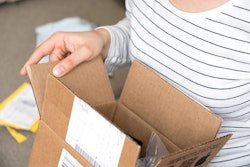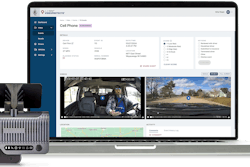
With the U.S. Customs and Border Protection (CBP)’s recent scrutiny of the ACE Entry Type 86 Test program, several customs brokers have had their licenses suspended. This program allows the flow of shipments, worth under $800, into the United States, exempted from duties and taxes. Classified as informal entry, this type of filing enables shipments to cross borders more swiftly. However, findings of counterfeit goods, illegal substances, forced labor products, misclassification of shipments and inaccuracies in filing data prompted the governmental crackdown on these low-value e-commerce parcels.
Consequences of non-compliance for perishable shipments
In response to the non-compliance of errant customs brokers, the CBP rolled out several measures to address erroneous filings. These include reducing the Entry Type 86 filing period from 15 days upon arrival to same-day or prior submission, and greater focus on accurate and timely data. Comprehensive product descriptions and Harmonized Tariff Schedule (HTS) codes are now requested. These new measures slow down the customs clearance process, causing delays in delivery. Beyond delays, a shipment that fails the Entry Type 86 test may result in additional duties and brokerage charges, and the costs will be passed on to their customers.
Upon rejection, a shipment has to be placed in a queue for manual review and inspection by CBP officers. Once selected for inspection, the process involves physically examining the goods to verify compliance with all relevant regulations. This inspection can take a few days to several weeks, varying based on the complexity of the shipment, availability of CBP resources and any additional documentation or information required. The actual inspection will take another few hours to days, depending on the shipment’s complexity and any additional checks required. If no further issues are found, the shipment can be released. Otherwise, it may require additional information or corrective actions, which will further delay the release.
The delays stemming from rejected parcels depend on multiple factors, including customs node traffic, shipment complexity and compliance issues. Customs nodes with high shipment volumes are likely to experience longer queues and inspection times and complex shipments may require longer inspection times. A shipment's complexity is determined by its declared value, with higher amounts inviting increased scrutiny and may necessitate additional documentation or verification.
The impact is more pronounced for cold chain management businesses, which involve perishable edibles like food and beverages that have specific storage conditions, mostly requiring refrigeration and have short shelf lives. Any incorrect filings or suspicious shipments would result in great costs due to spoilage, reduced shelf life and food wastage.
Food and beverage shipments add to the complexity of Entry Type 86 clearance
Certain products, such as food and beverages, constitute complex shipments under the Entry Type 86 test, which requires meticulous descriptions, classifications and cargo handling due to specific regulatory standards by Partner Government Agencies (PGAs) such as the U.S. Food and Drug Administration (FDA) and U.S. Department of Agriculture (USDA). Alcohol products are not eligible for Entry Type 86 clearance. When importing food products into the United States, it is mandatory to issue prior notification to the FDA, where timeframes vary based on the mode of transportation. As food and beverage products are perishable, expedited processing and special handling are required to ensure they remain safe and consumable upon arrival.
Food and beverage products need specific labeling detailing information like ingredients, nutritional information and country of origin. To ensure health and safety standards, food and beverage shipments are also more likely to be selected for inspection. These add to the complexity of shipment clearance, and any incorrect information can result in delays and fines. Delays lead to spoilage and dissatisfied customers, resulting in substantial losses for businesses, and in severe cases, can cause a food shortage. The resultant hike in food prices will then motivate consumers to maintain a tighter grip over their spending.
Technology expedites food and beverage shipment clearance with accuracy
With the advent of artificial intelligence (AI), numerous operational processes can be streamlined with increased precision. Platforms assisting with customs declaration filings now offer automated tools that expedite the process, allowing for more parcels to be cleared while ensuring information accuracy as the need for manual entry declines. These tools include features such as Harmonized Tariff Schedule (HTS) code recommendations, automatic replacement of invalid codes, identification of PGA flags that can be disclaimed and flagging potential errors before submissions to CBP and PGAs. Apart from ensuring that details are correctly filled, AI can help swiftly identify and validate high-risk or suspicious shipments before submitting to CBP.
Technology also accelerates parcel clearance through the rapid processing of large shipment volumes, enabled by robust modern software architecture. Therefore, Entry Type 86 submissions can be processed quickly, accurately and comprehensively, to effectively cope with the growing volume of low-value shipments while ensuring on-time deliveries – expected by all businesses and customers. With time savings come cost savings, enabling all parties to reduce expenditure in the long run.
Partnering customs clearance specialists for specific trade routes
For imports originating from specific regions or countries, it is prudent to collaborate with a customs clearance partner specializing in those trade routes. They often provide end-to-end services, including specialized cargo handling and last-mile delivery, especially valuable to businesses who have little knowledge or bandwidth to import low-value parcels. Their added value includes importation advice from specialists with years of experience, overcoming language and cultural barriers with multilingual teams, leveraging networks with local partners and government agencies and around-the-clock support across different time zones.
Balancing responsibility between food and beverage businesses and customs brokers
Food and beverage businesses are responsible for declaring the exact contents and value of parcels with full transparency, along with other information. More often than not, the declarations are outsourced to external customs brokers to file, given the costs of managing an internal customs brokerage team. However, external brokers may not comply with regulations for multiple reasons – lack of information about the shipments and corruption, amongst others. Hence, it is important for businesses to engage a broker who not only is registered with CBP, but also has a proven track record of reliability and ethics. It would be wise to research their approach to customs regulations and find out if they are insured and bonded. The onus is also on businesses to provide truthful information.
Customs brokers working with businesses must also consider how their reputation can be marred by misinformation or incomplete Entry Type 86 filings, and the hefty costs that could plague their clients. Brokers need to verify the information provided by clients, for accuracy and completeness.
The Entry Type 86 import program was designed to expedite the customs clearance of low-value parcels and reduce costs, benefiting businesses and consumers. It should not be abused, lest more stringent regulations, that will slow down the clearance process, be imposed. As such, full regulatory compliance is the ultimate goal, and this requires the cooperation of all stakeholders – businesses and customs brokers alike.




















